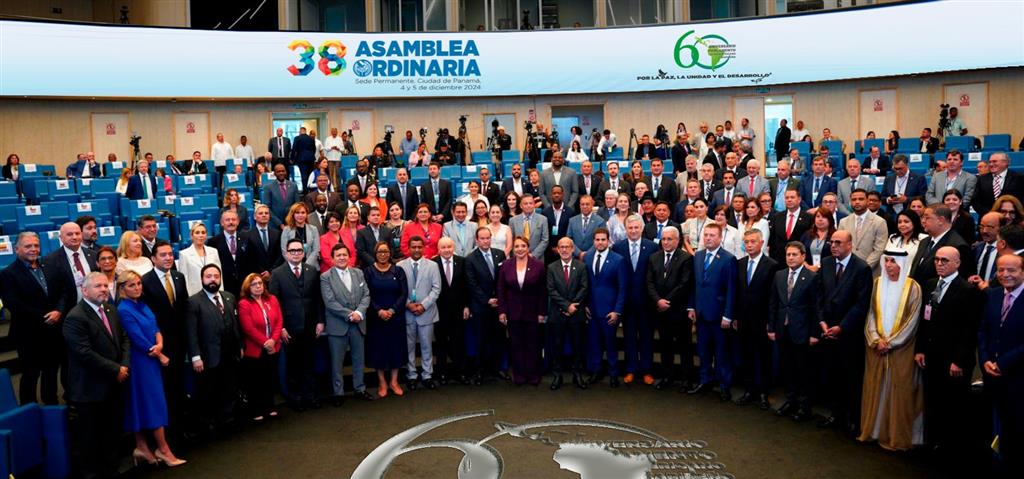Opening the 38th Ordinary and Commemorative Assembly of Parlatino, based in Panama since 2008, González said that beyond the date of December 10, 1964 and the first steps of the organization, the inceptive work by precursors Andrés Townsend (Peru), Nelson Carneiro (Brazil) and Luis León (Argentina) has multiplied.
In this regard, he mentioned the approval of more than 100 model laws in key areas of the 23 member nations, a greater presence of women among legislators and the promotion of initiatives that contributed to the emergence of other integration mechanisms, such as the Community of Latin American and Caribbean States (CELAC), established in Caracas in February 2010.
Honduran president, Xiomara Castro, pro tempore president of CELAC, gave a keynote speech on the current political, economic, social and environmental challenges in the region.
Castro emphasized the urgency of greater integration to confront neo-fascist currents and coup plots that threaten countries in the form of media manipulation, submission to neoliberal formulas or inhuman blockades such as the one imposed by the United States on Cuba, Nicaragua and Venezuela, which she strongly condemned.
Regarding situations of conflicts and violence, such as those gripping Haiti, she urged the creation of an Emergency Fund with contributions from all nations in the region, to address the humanitarian crisis and contribute to an institutional reconstruction that represents the Government and people of that Caribbean nation.
The 38th Assembly, attended by Panamanian Foreign Minister, Javier Martínez-Acha, and the president of the National Assembly (parliament) Dana Castañeda, also included a special intervention by the FAO subregional coordinator for Mesoamerica and its representative in Panama and Costa Rica, Adoniram Sánches.
The expert praised the achievements of the Food and Agriculture Organization of the United Nations (FAO) and Parlatino over 15 years of alliance, including the creation of the Parliamentary Front against Hunger in Latin America and the Caribbean, a plural network that has promoted more than 50 laws supporting the Sustainable Development Goal.
At the meeting, a Commemorative Postal Stamp and a plaque were stamped alluding to the date of the Parlatino’s constitution, and posthumous tributes were paid to leaders such as Humberto Peláez (Colombia), Luis Rubeo (Argentina) and Uruguayans Daysi Tourné and Juan Adolfo Singer, in recognition of their valuable legacy in promoting integration.
The event’s Thursday agenda features the approval of model laws and the election of authorities for the period 2024-2026.
Founded on December 10, 1964 in Lima, Peru, Parlatino was established with the purpose of promoting regional integration, peace and development.
ied/mem/ga









